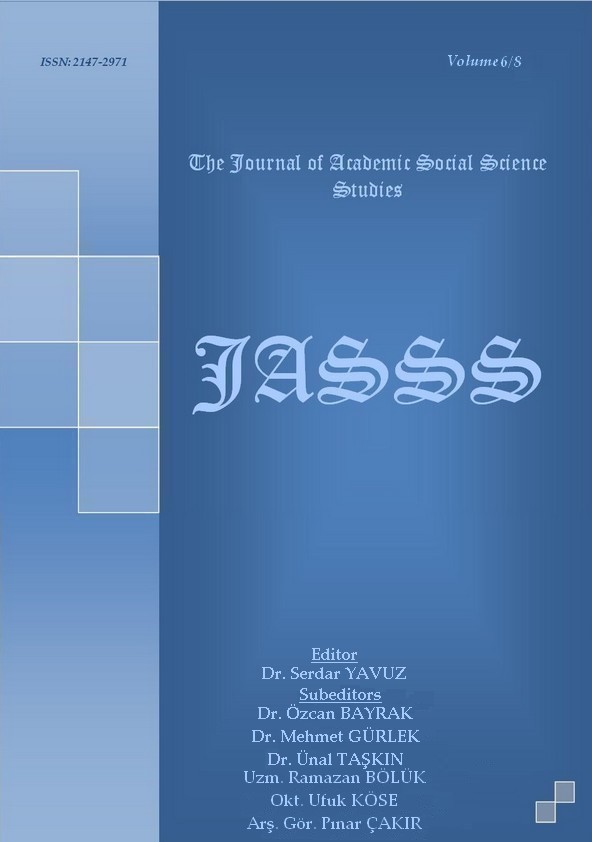Author :
Abstract
Bu çalışma Türkiye’deki iki ana siyasi parti, Adalet ve Kalkınma Partisi (AKP) ve Cumhuriyet Halk Partisi’nin (CHP) başörtüsü sorununa yaklaşımını, varsa partilerin konu hakkındaki yakın dönem açılımlarını ve siyasetçilerin parti yaklaşımını ne kadar içselleştirdiğini incelemektedir. Bu çalışmanın saha araştırması üç ana eksene dayanmaktadır. Bu eksenlerden birincisi, parti dokümanlarıdır ve partilerin programları, tüzükleri ve düzenli yayınlarını içerir. Partilerin düzenli yayınları, AKP için Türkiye Bülteni, CHP için Halk’tır. Araştırmanın ikinci ekseni olarak, biri merkez solda (Cumhuriyet Gazetesi), diğeri merkez-sağda (Yeni Şafak Gazetesi) olmak üzere seçilmiş iki gazetedir. Araştırmanın üçüncü ekseni ise, partilerin farklı hiyerarşi seviyelerinden en az bir erkek ve bir kadın siyasetçiyle yapılan röportajlardır. Bu röportajlar, ilçe, il ve genel merkezde, yönetim kurulu, gençlik kolları yönetimi ve kadın kolları yönetiminde gerçekleştirilmiştir. Ayrıca, erkek ve kadın taban siyasetçileri, ilçe ve il belediye meclislerinden ve Parlamento’dan en az bir kadın ve bir erkek siyasetçi de röportaj kapsamına alınmıştır. Röportaj çözümlemelerinin değerlendirilmesinde Atlas-ti adlı niceliksel bilgi analizi programı kullanılmıştır. Bu makale, son zamandaki yakınlaşmalarına rağmen, iki partinin kamusal alanda başörtüsüne zıt yaklaşımları olduğunu ortaya koymaktadır. Hem AKP hem de CHP başörtüsünün Türk geleneklerinde var olduğunu kabul etmektedir. Ancak CHP kamusal alanda kadınların başörtülü çalışmasına karşıdır, AKP ise kadınların kamusal alanda başörtülü de çalışabilmesi taraftarıdır.
Keywords
Abstract
This study aims to analyze how the main political parties in Turkey, the AKP (Adalet ve Kalkınma Partisi, The Justice and Development Party) and the CHP (Cumhuriyet Halk Partisi, The Republican People’s Party), approach the headscarf issue, what kinds of openings, if any, these parties have adopted recently, and to what extent politicians adopt their party’s approach. The field research for this study rests on three pillars. The first of these is made up of party documents, that is to say programs, statutes and internal publications. The main publications of the parties are Türkiye Bülteni (Turkey’s Bulletin) for the AKP and Halk (The People) for the CHP. As the second pillar of the research, two dailies, one from the center right (Yeni Şafak - The New Dawn) and the other from the center left (Cumhuriyet - The Republic), have been chosen. The third component of the research is made up of interviews with at least one man and one woman from every level of hierarchy in each of these parties (i.e. main office administration, youth branches’ administration and women’s branches’ administration at the district, provincial and national levels). Men and women grassroots politicians as well as at least one woman and one man from the municipal councils of specific districts, provinces and in the parliament were also interviewed. The interview transcripts were treated through the qualitative data analysis software Atlas-ti. This article reveals how, despite recent convergences, the two parties have opposing approaches to the issue of the headscarf in public space. Both the AKP and the CHP accept that head covering is within the Turkish traditions. However, the CHP is against the employment of women with headscarves in the public sector whereas the AKP is for the employment of women with headscarves in the public sector.





